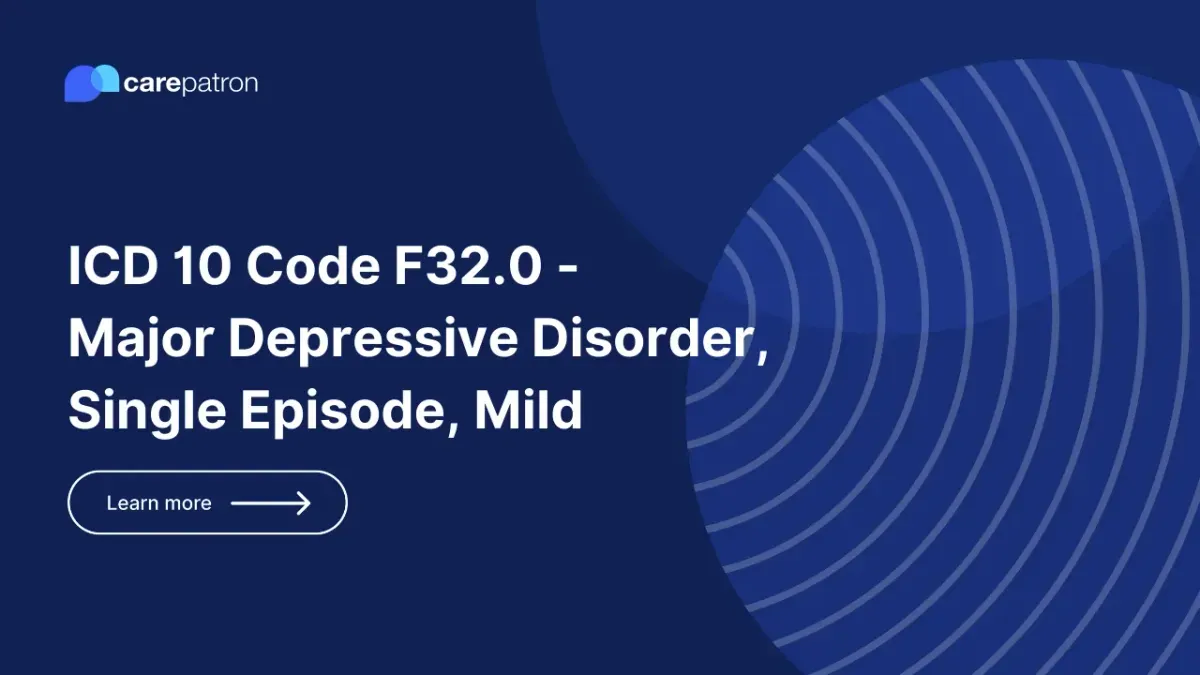
F32.0 – Major Depressive Disorder, Single Episode, Mild
Learn about the ICD-10-CM code F32.0 for mild major depressive disorder, single episode, including its clinical description, billability, related codes, & more.
Use Code
Commonly asked questions
Symptoms of this mild depressive episode include sadness, hopelessness, lack of interest in activities, difficulty concentrating, and changes in appetite or sleep patterns.
Diagnosis involves a clinical assessment, including a detailed patient history and mental status examination, to evaluate the severity and duration of depressive symptoms.
Treatment typically involves a combination of psychotherapy, such as cognitive-behavioral therapy, interpersonal therapy, problem-solving therapy, and self-help strategies. In some cases, medication may also be prescribed.
EHR and practice management software
Get started for free
*No credit card required
Free
$0/usd
Unlimited clients
Telehealth
1GB of storage
Client portal text
Automated billing and online payments
